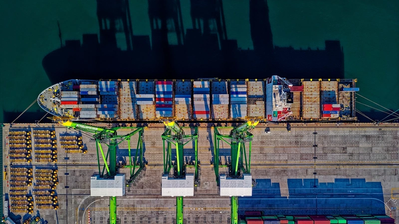Onboard Fuel Compatibility Testing is Growing
Parker Kittiwake is witnessing an increase in demand for onboard fuel compatibility testing.
The trend reflects the urgency in the market as shipowners and operators take a more deliberate and proactive approach to mitigating the risks of potential marine fuel oil incompatibility and stability issues associated with the impending 2020 global sulphur cap regulation.
With the majority of shipowners expected to opt for very low sulphur fuels of 0.5% or less to achieve compliance, the shipping industry is seeing a rise in new blended fuels appearing on the market. However there are significant concerns around how these new fuels will affect marine engines, which is why testing for compatibility and cat fines, for example, is increasing.
Amid widespread concerns and uncertainty, and in preparation for 2020, shipowners and operators are looking to condition monitoring tools and technologies as the first line of defense for the early identification of issues, helping them to minimize disruption, downtime, and unexpected costs and delays.
Scott Herring, Key Marine Accounts Manager, Parker Kittiwake commented: “It is crucial that these new fuels are managed effectively at all key stages of supply to allow shipowners to mitigate the risks associated with contamination, instability and incompatibility. If left unchecked, instability can cause severe problems including sludging of the fuel tanks, filter blockages and excessive sludging of the purifier. In the worst cases, this can lead to catastrophic failure and loss of propulsion and power.”
Herring continued: “The stability of the fuel and its compatibility for blending is critical to protecting the operational efficiency of the engine. Vessels bunkering in different geographical locations will use varying fuel suppliers, and thus blending of fuels is inevitable. With preparation in the lead up to 2020 critical, and with so little time remaining, Parker Kittiwake is seeing an increasing number of shipowners and operators taking the crucial steps to tackling fuel incompatibility and stability issues head-on, through quick, reliable and effective onboard testing, before they become significant and costly challenges.”
With so many variables influencing fuel quality and the resulting impact on combustion and engine damage, effective and reliable testing and monitoring becomes crucial to safeguarding the safety and operational efficiency of the vessel. Onboard testing gives shipowners and operators quick and simple access to the information they need to effectively manage maintenance requirements and prevent damage.
Parker Kittiwake’s range of fuel testing tools have been designed to support shipowners in checking key concerns linked to issues such as compatibility, instability and cat fines. These simple, fast and intuitive test kits help to ensure that 2020 compliance is achieved safely and without impacting operational efficiency. Parker Kittiwake’s Compatibility Tester provides shipowners and operators with the ability to regularly test fuels onboard and in just under 20 minutes. It provides a quick indication of potential fuel incompatibility problems, as well as an indication of fuel stability, in accordance with ASTM D4740.















